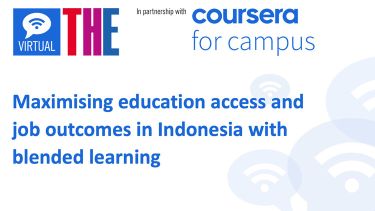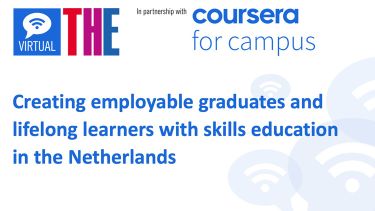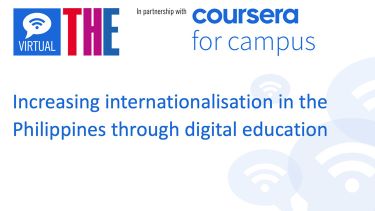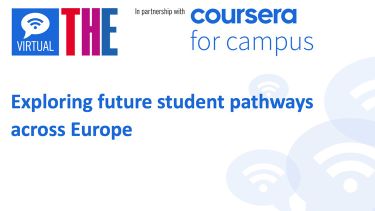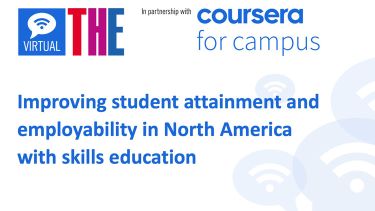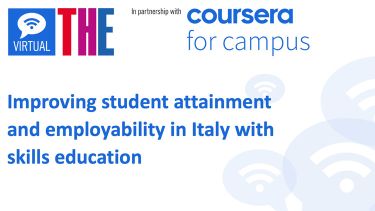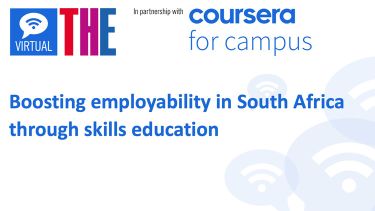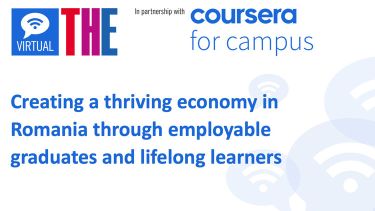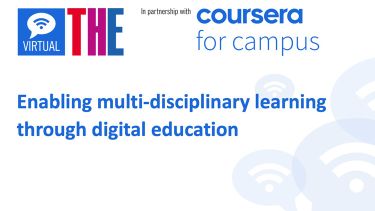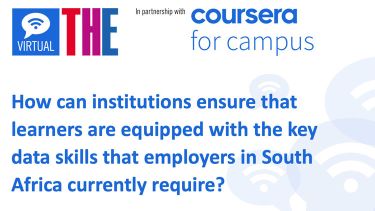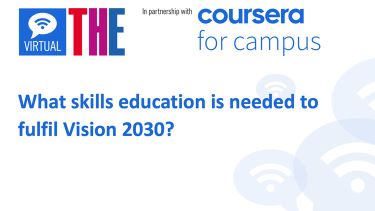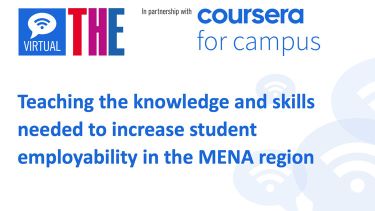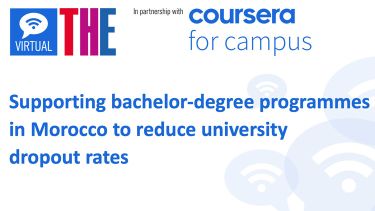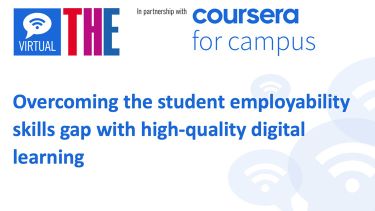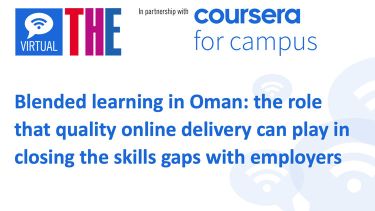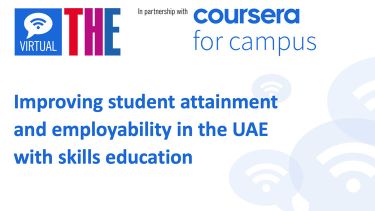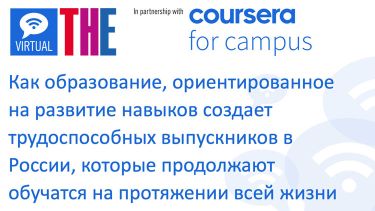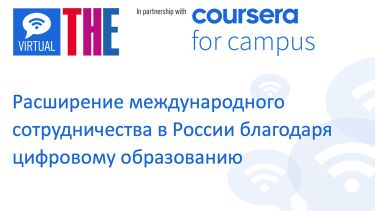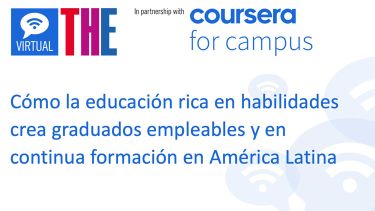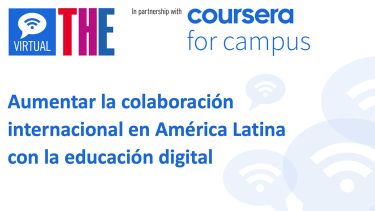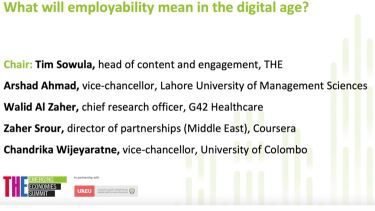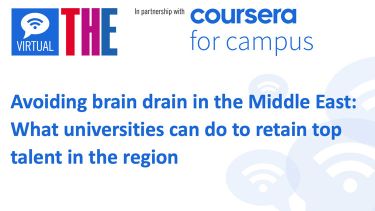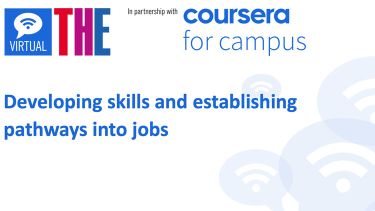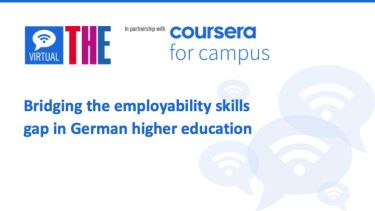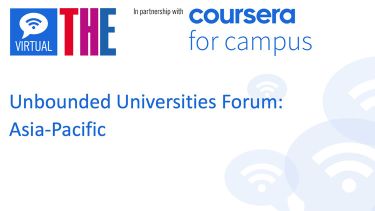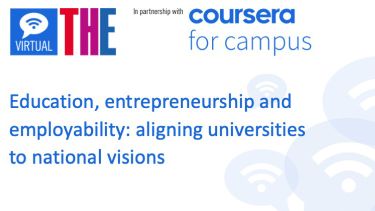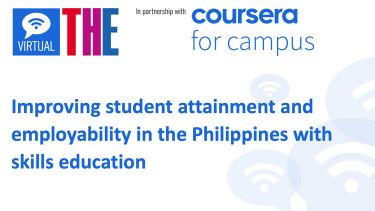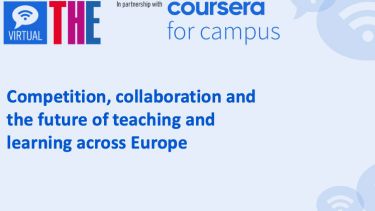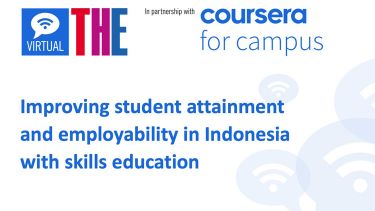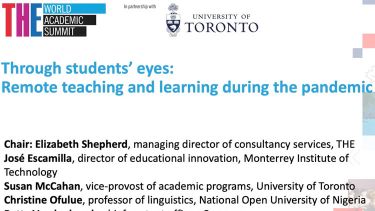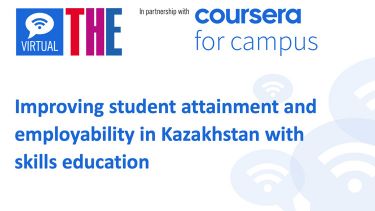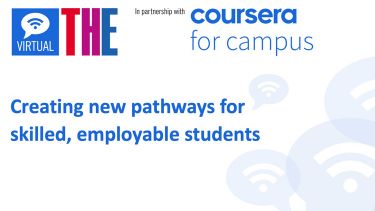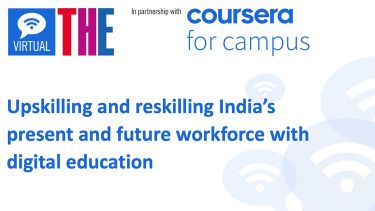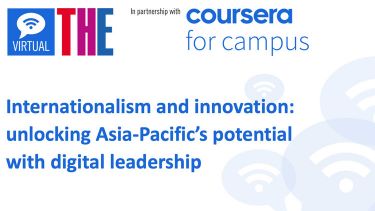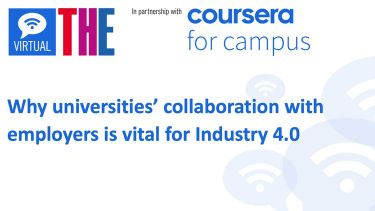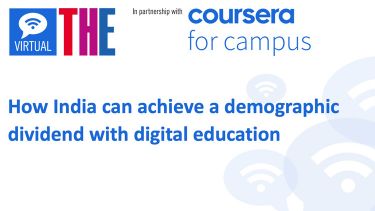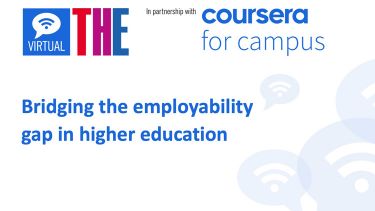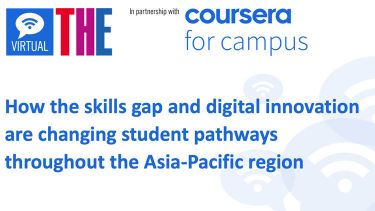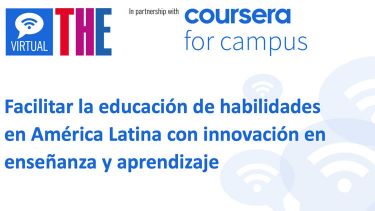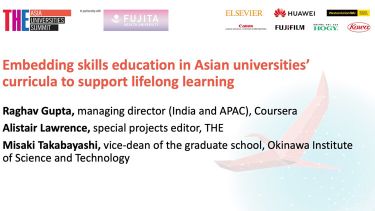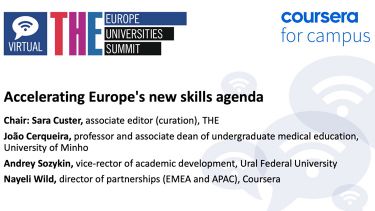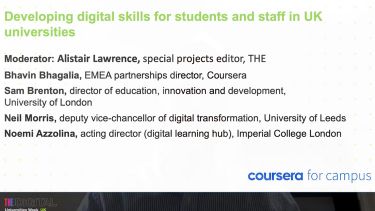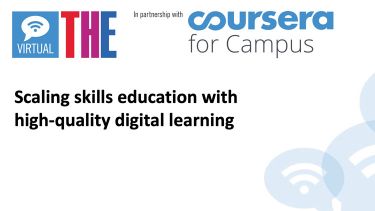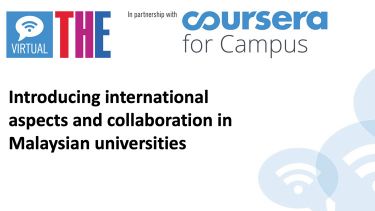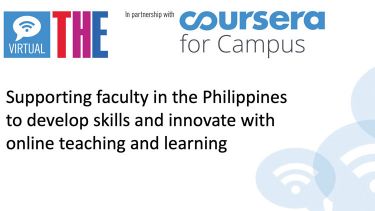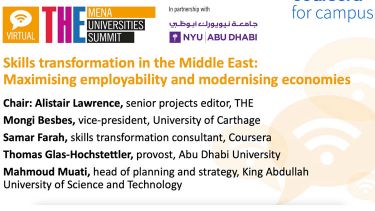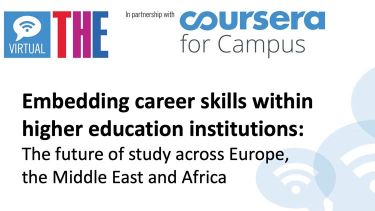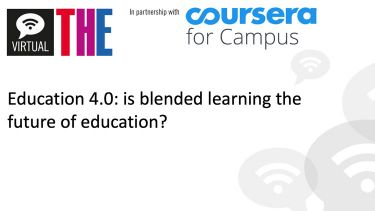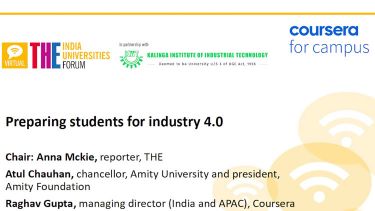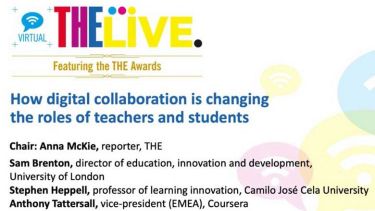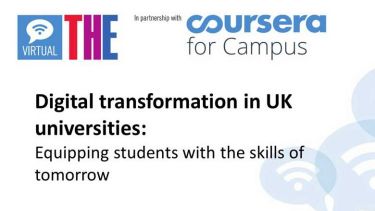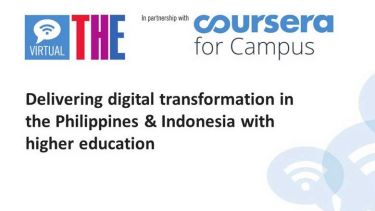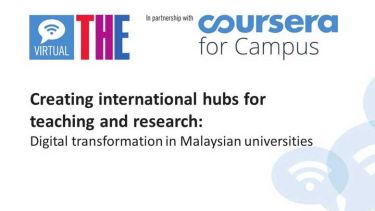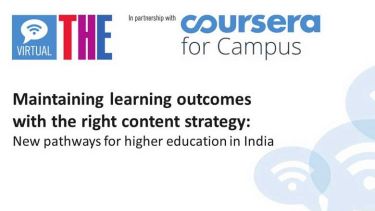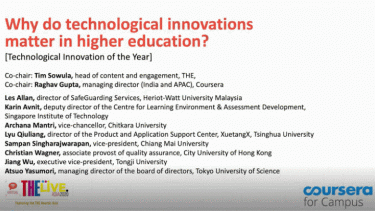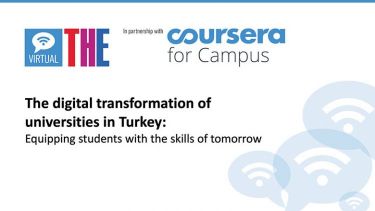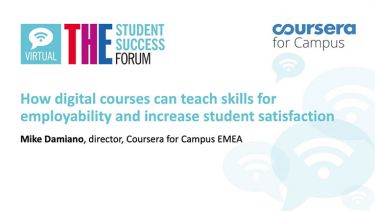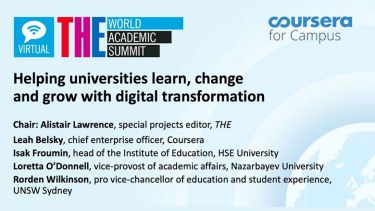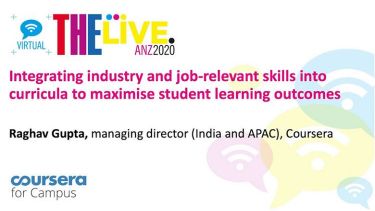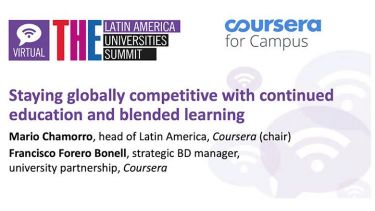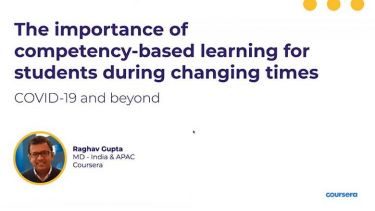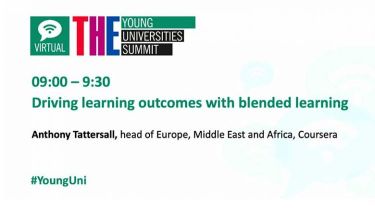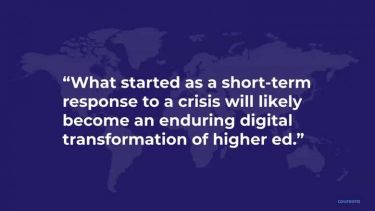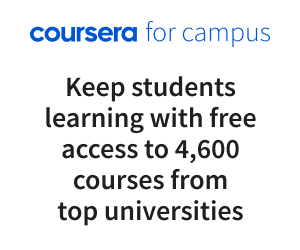Higher education institutions in MENA are shifting their pedagogical approach to ensure students have the hard and soft skills to thrive in a changing labour market
The higher education sector in the Middle East and North Africa (MENA) faces many challenges, but the region’s dynamism offers a source of hope. Today, two-thirds of MENA’s population is under 35 years old. With the right education and training, the opportunities for students, institutions and businesses in the region are enormous.
At a virtual webinar discussion, hosted by Times Higher Education in partnership with Coursera for Campus, education leaders from the MENA region came together to explore how universities have adapted to recent challenges and how new teaching models can be used to empower their students.
Mongi Besbes, vice-chancellor of the University of Carthage, highlighted the importance of preparing students for a rapidly changing world of work. “The cohort of students entering university next year will retire around 2060,” he said. “We need to train these students to use tools that don’t currently exist. We need to educate them to be open to change. In the 21st century, the worst approach that the education sector can adopt is to stand still.”
Echoing this view, Aawatif Hayar, president of Hassan II University of Casablanca, explained how her institution had moved away from a rigid approach to learning, which made it difficult for students to switch from one field to another. “Morocco is now preparing to adopt the bachelor system from the next academic year to align the national education system with international standards. This will upgrade our pedagogical offer, giving students the necessary knowledge and skills to succeed in both academic and professional settings.”
The need to provide students with a broad spectrum of skills was also discussed by Imed Hammouda, dean of the Mediterranean Institute of Technology at Southern Mediterranean University. “We are aware that our students need both hard and soft skills. As an engineering school, we understand that our students also need to know about business modelling, finance, management, psychology, economics and so on. We believe that this kind of multidisciplinary approach is a great way of preparing our students for the job market."
“It’s important that universities enable students to become autonomous in their learning,” Fay Abdulla Al Khalifa, director of the eLearning Center at the University of Bahrain, said. “We must give them the skills needed to become lifelong learners. I think this should be the aim of higher education.”
For Zaher Srour, director of partnerships at Coursera, the reason institutions are teaching broader skillsets is partly due to technology. “Companies are driving the adoption of technology and automation, and, in turn, this is requiring students to have emerging skills. This includes things like e-commerce, data analytics, digital marketing and cybersecurity – all of these skills existed previously but are now rapidly accelerating. Students are coming to Coursera keen to develop these types of skills.”
With higher education becoming increasingly competitive, it’s more important than ever for universities to prepare their students for the job market. “Even with a master’s degree or PhD, not all of our students can or will become academics,” Samah Gamar, director of the Teaching and Learning Center at the Doha Institute for Graduate Studies, explained. “We recently ventured into online internships for the first time – not only within a local context but internationally too.”
The panellists highlighted the unexpected benefits that have emerged in the past year and the importance of ongoing evolution for universities in the MENA region. “Going forward, the best learning programme will not simply reflect existing forms of teaching but take advantage of new digital tools and teaching styles,” Dr Besbes said. “Learning must always be flexible, dynamic and individualised”.
Watch the webinar on demand above or on the THE Connect YouTube channel.
Find out more about Coursera for Campus.





